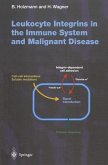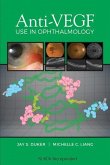Integrins play a critical role in numerous vital processes on the systemic, tissue, cell, and molecular levels. These include homeostasis; immunity; hematopoiesis; fertility and embryogenesis; cell proliferation, differentiation, cell cycle division and apoptosis; and gene expression. Impairment of integrins' functions causes the dramatic remodeling of these processes. Prolonged therapy with anti-α4β antibodies may result in severe pathological consequences, including generalized immunosuppression leading to an extreme risk of very serious infections; uncontrolled proliferation and altered differentiation of hematopoietic cells possibly leading to hematological abnormalities and increased risk of malignancies; and alterations in spermatogenesis, fertility, and embryonic development. Natalizumab (Tysabri) is an impressively effective drug. In the professional opinion of well-known neurologists it is considered to be a promising agent for the treatment of multiple sclerosis. However, whereas the evaluation of the drug's benefits can be done by neurologists alone, it is mandatory that the risk in using this agent should be assessed by a team of experts in a number of fields: immunology, infectious diseases, hematology, oncology, and embryology. It is essential to recognize that innovative integrin-antagonist therapy, e.g. therapy with anti-α4β integrin monoclonal antibodies, must be handled with extreme caution.
Hinweis: Dieser Artikel kann nur an eine deutsche Lieferadresse ausgeliefert werden.
Hinweis: Dieser Artikel kann nur an eine deutsche Lieferadresse ausgeliefert werden.








